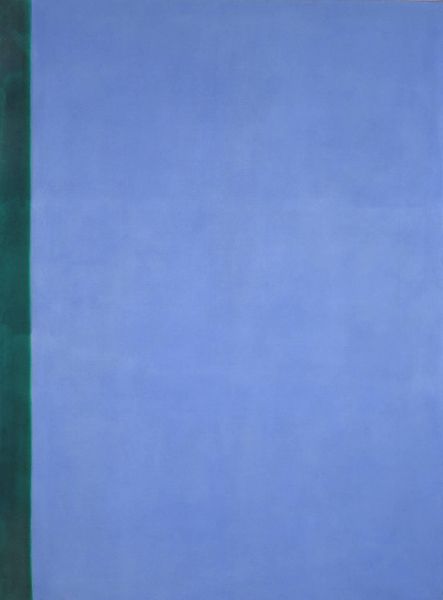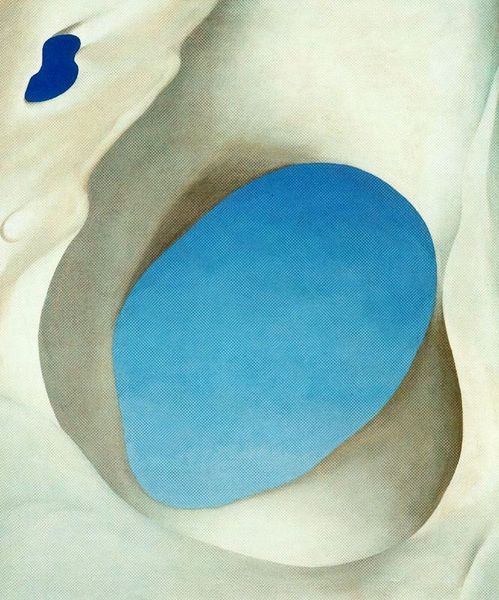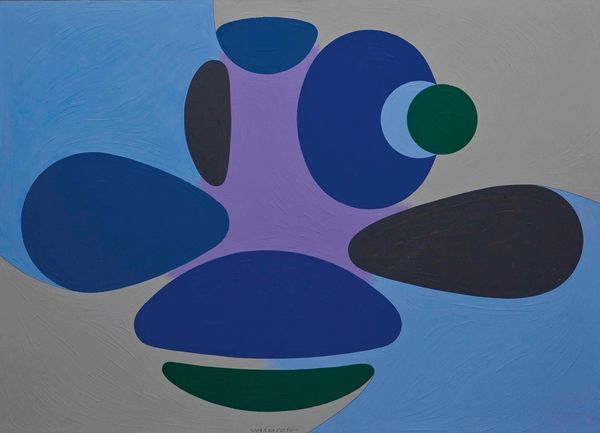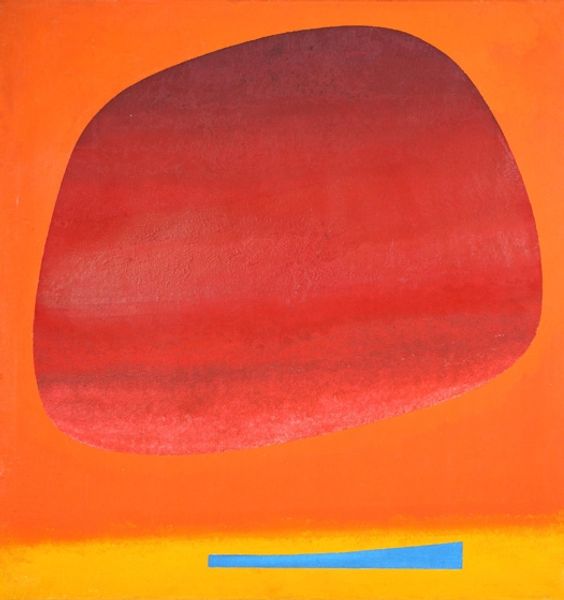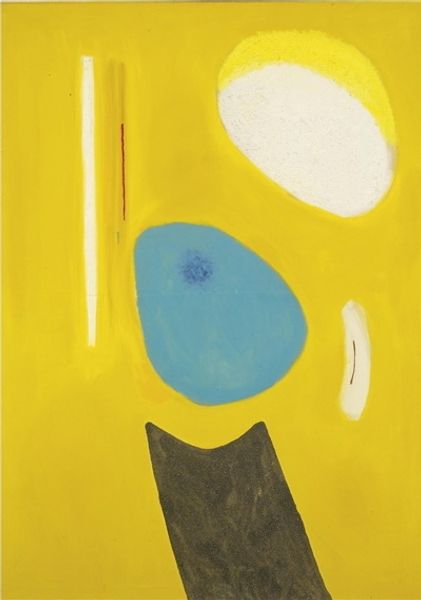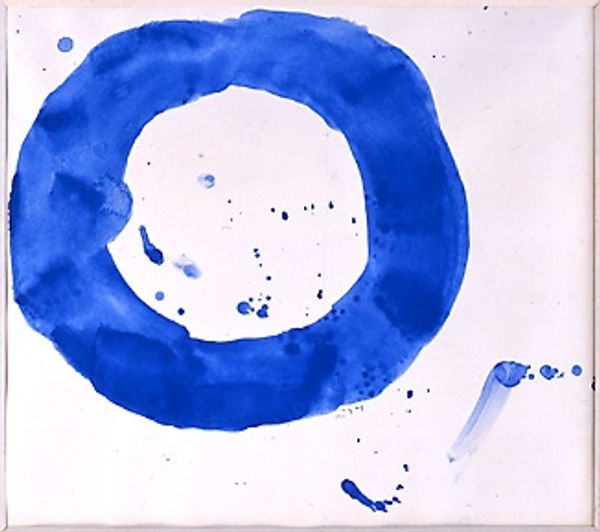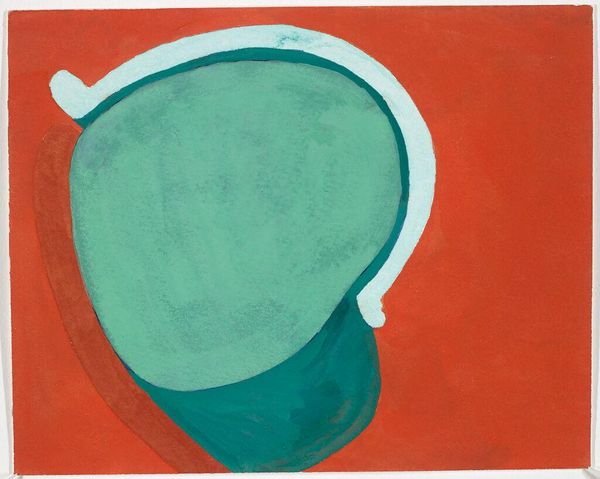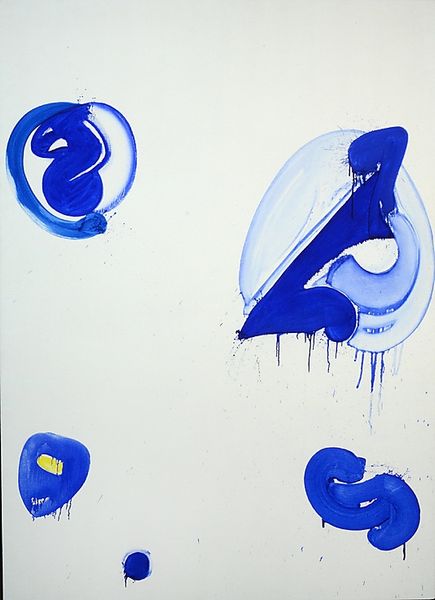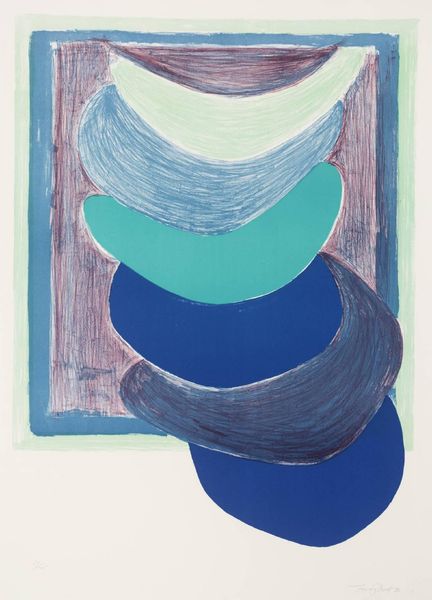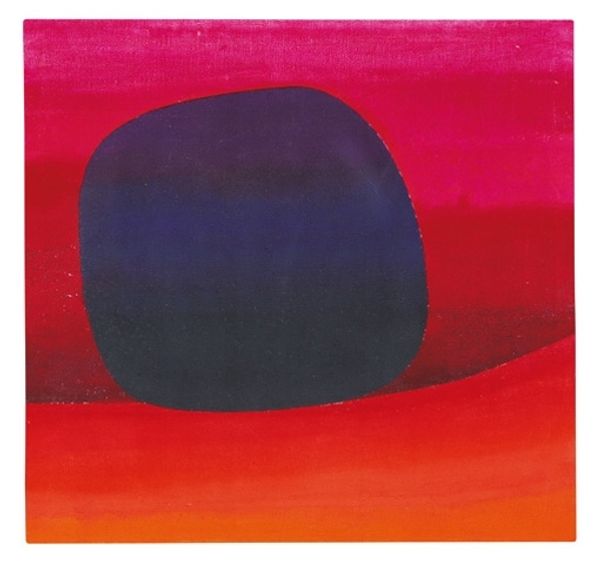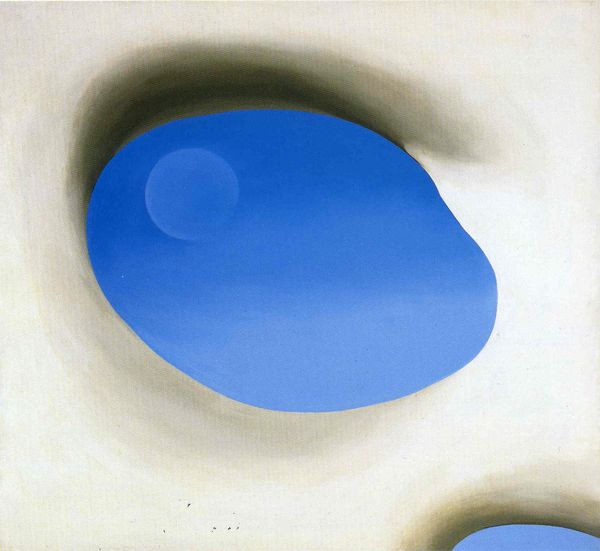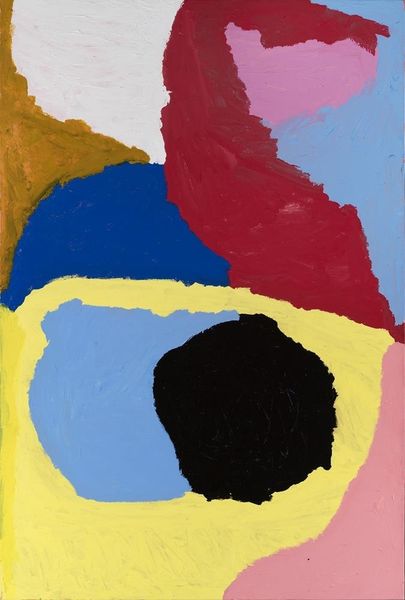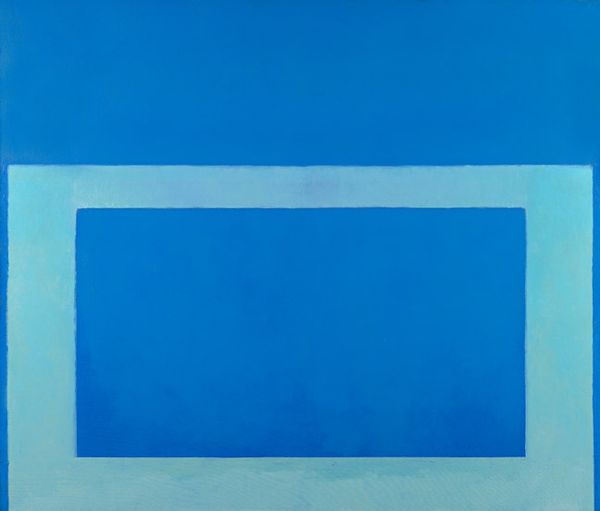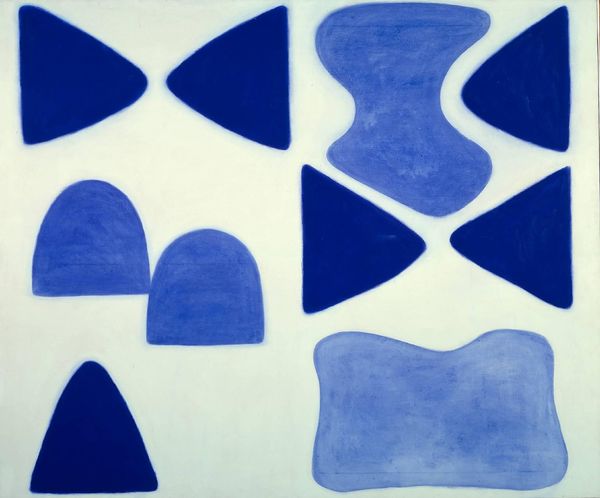
painting, acrylic-paint
#
organic
#
acrylic
#
painting
#
acrylic-paint
#
geometric
#
abstraction
#
modernism
Copyright: Georgia O'Keeffe,Fair Use
Curator: This is "Pelvis" by Georgia O'Keeffe. It's undated, but done in her signature modernist style using, it seems, acrylic paint. The colors, really, do remind one of summer sky… Editor: Sky? All I see is blue enamelware. You know, those speckled tin dishes grandma used to have? Smooth, almost industrially precise curves. Gives me that nostalgic pang for simpler, though probably not actually simpler, times. Curator: Nostalgia! Perhaps...though I feel it goes further than simple nostalgia for grandma’s kitchen! Isn’t there something profoundly, exquisitely…vulnerable about this blue form presented so starkly? Like a memory just beyond grasping, but viscerally felt? Editor: Vulnerable? Perhaps, but I see a clear visual vocabulary steeped in materiality and the history of production, not just in aesthetic yearning. It really highlights how even an artist like O'Keeffe, supposedly capturing organic forms, still operates within the available material landscape. Acrylics became prominent after the 1950s, remember! This affects how we read the abstraction, whether intentionally or not. Curator: Always about the materials with you! While your points are astute, isn't the very abstraction precisely the key to its impact? The organic rendered as near geometric… it invites contemplation on the relationship between nature and, say, emotional artifice? Editor: Right, and who produced that material? The synthetic process becomes relevant when one contemplates the geometric forms. Where was this manufactured, and how was it transported? Did the qualities of this kind of readily available acrylic change art, or vice versa? These questions inevitably lead to reflections of production, work, even alienation... Curator: Alright, alright, so maybe grandma's blue enamelware is not all that different from raw acrylic compound. Still, I choose to linger within O'Keeffe's color gradient here: to consider how such deceptively simplistic form conjures complex feelings about what is natural, manufactured, known or just out of reach... Editor: Well, even if my analysis led us through the labyrinthine factories of acrylic production… the undeniable evocative quality speaks both to form and function; I leave slightly better-informed about modernist materials *and* feeling contemplative, which is good, right?
Comments
No comments
Be the first to comment and join the conversation on the ultimate creative platform.
